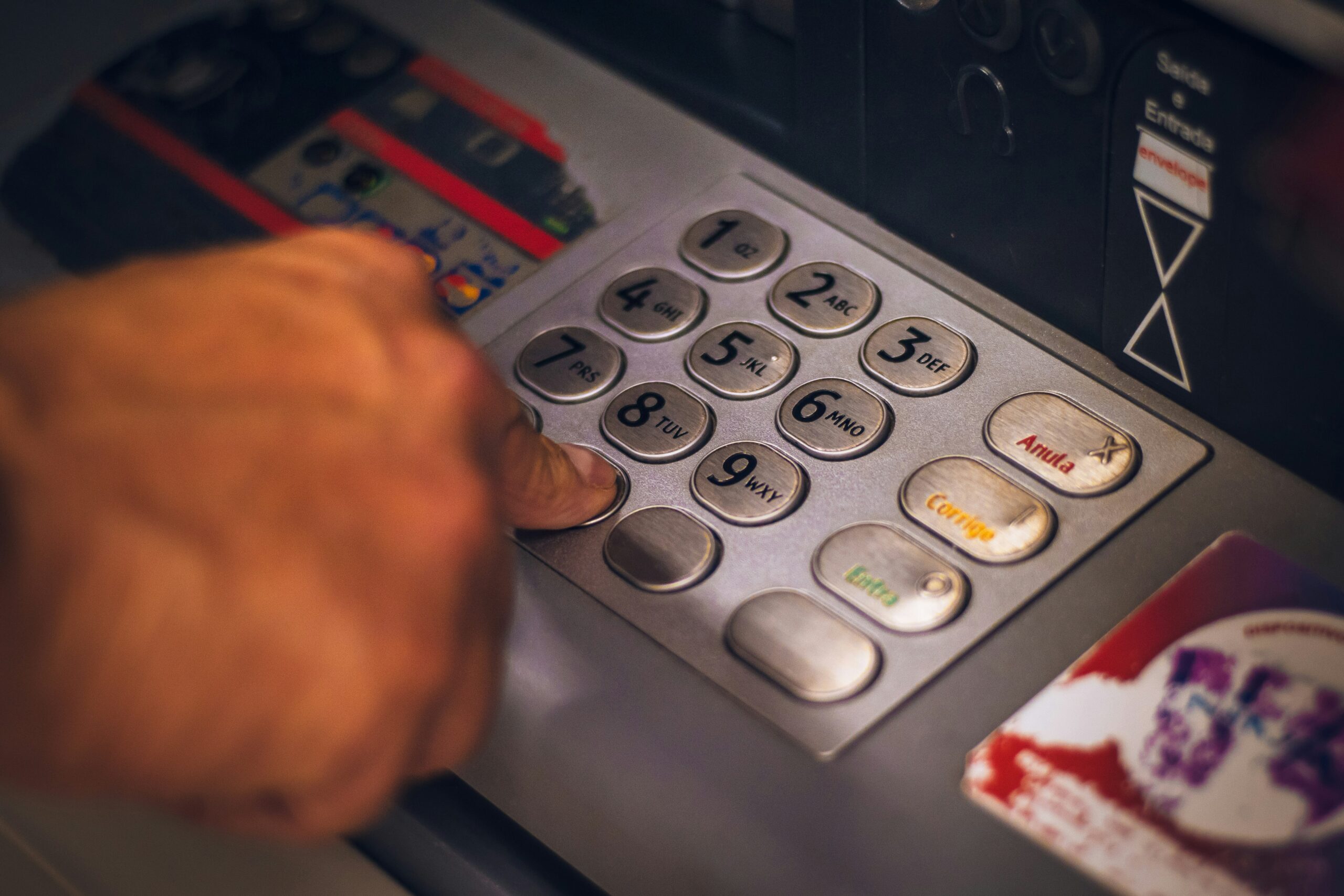
- Insurance
-
-
Most Popular
-
-
- Investing
-
-
Most Popular
-
Best Of
-
-
- Banking
-
-
Best of
-
Banking Reviews
-
Explore More
-
-
-
- Loans
-
-
Most Popular
-
Explore more
-
-
- Credit Cards
- Reviews
- Making Money
Navigating the Fallout: What Does It Mean to Be Blacklisted by a Bank?
What does it mean to be blacklisted by a bank? To be blacklisted by a bank is to be marked as a high-risk customer, often due to financial missteps. This designation can restrict your access to banking services, from opening new accounts to obtaining loans, and can have wider impacts on employment opportunities. This article will explore the consequences of being blacklisted, how to check your banking history, and strategies to clear your name, ensuring you are equipped to navigate and rectify such a financial setback.
Written by:
Key Takeaways
- Being blacklisted by a bank indicates a high-risk profile due to past financial issues such as overdrafts and bounced checks, hindering access to basic banking services and affecting loan opportunities and employment prospects
- Recovery from bank blacklisting involves settling outstanding debts, correcting errors in the ChexSystems report, and working with financial counselors to rebuild a positive financial history.
- Alternatives for those blacklisted include second chance checking accounts, prepaid debit cards, and community credit unions, providing temporary financial services while working to restore traditional banking privileges.
Table of Contents
Understanding Bank Blacklisting
The term ‘blacklisted’ might evoke thoughts of espionage and political intrigue, but in the financial realm, it carries a different type of weight. Being blacklisted by a bank is akin to having a red flag raised against your name, signaling to financial institutions that you’re a high-risk customer due to past banking transgressions. It’s not just about being denied a shiny new credit card; it’s about the fundamental ability to manage your day-to-day finances through a bank account.
When you’re blacklisted, banks see a history marred by overdrafts, bounced checks, and other banking problems. This can lead to an uphill battle in securing the financial services that many take for granted, such as standard checking accounts or personal loans.
The Mechanics Behind Blacklisting
ChexSystems might sound like a high-tech security firm, but in reality, it’s the gatekeeper of your banking reputation. Functioning similarly to a credit bureau, ChexSystems keeps a vigilant eye on banking behaviors. Think of it as a ledger, recording every financial faux pas—from overdrafts to unpaid fees—and banks consult this logbook before rolling out the welcome mat for new account applicants. If your name is listed within its pages, it’s like having a financial mugshot that banks take into consideration, potentially blocking you from the banking services you need. To learn more about your banking history, you can visit the ChexSystems website.
The good news? You’re entitled to request your ChexSystems report and credit reports from major credit bureaus to understand exactly why you’ve been turned away from opening a new account.
Consequences of Having Your Name on the Blacklist
The ripple effects of being blacklisted stretch far beyond the inability to open new bank accounts. It’s a domino effect; one that may topple over your chances of obtaining loans, casting a shadow over your dreams of buying a home or starting a business due to perceived financial risks. But it doesn’t stop with loans.
In today’s world, where credit checks are as common as handshakes, being blacklisted can also jeopardize employment opportunities. Some employers peek into your financial past as part of the hiring process, and a blacklist mark could be the barrier between you and your next job
Repairing Your Banking Reputation
With the stakes so high, how does one mend the cracks in their banking reputation? It’s a road that requires facing banking problems head-on, armed with strategy and persistence. Settling outstanding debts is the cornerstone of this restoration process, as it signals to banks and credit agencies your commitment to financial responsibility. Correcting errors in your ChexSystems report is another crucial step, akin to cleaning up your digital financial footprint for future scrutiny.
And let’s not forget the guidance of financial counselors; these navigators of the fiscal seas can steer you away from the snares that led to blacklisting and towards safer financial shores.
Strategies to Settle Outstanding Debts
Embarking on a quest to settle unpaid debts can feel daunting, but with the right tactics, it’s a battle you can win. Here are some steps to follow:
- Confirm the debt’s legitimacy.
- Crunch the numbers for a realistic payment plan.
- Steer clear of debt settlement companies demanding upfront fees; they’re the sirens of the financial sea, promising salvation but potentially leading you further astray.
Once you’ve brokered a peace treaty with your debt collectors, ensure all agreements are etched in writing, providing a tangible testament of your commitment to repay. These written agreements are not just receipts; they’re your shields, protecting your integrity and proving to banks that you’re on the path of financial rectitude.
Disputing Errors Effectively
But what if the black mark against your name is a blemish of error, not of intent? Disputing inaccuracies is your right and your armor in reclaiming your banking honor. Craft your dispute letters with the precision of a master wordsmith, each one supported by documents that serve as your evidence in this financial court.
If your first attempt is met with denial, brandish additional evidence or demand an explanation; after all, this is not just about numbers on a report, but about your life’s opportunities. Persistence pays off, and clearing these errors can be the key to unlocking the doors that were unfairly closed to you.
Alternative Financial Solutions

Even as you endeavor to polish your tarnished banking history, the immediate need for financial services remains. Enter the world of alternative financial solutions, a haven for those who’ve been cast aside by traditional banks. Second chance checking accounts, online banks, and community credit unions extend an olive branch to those blacklisted, offering a path to regain some degree of financial normalcy. Among these options, a credit union can be a particularly appealing choice for those seeking personalized services and support.
Prepaid debit cards, although not without their drawbacks, provide a temporary platform for financial transactions, ensuring you’re not left entirely in the cold.
Exploring Second Chance Checking Accounts
Hope springs eternal with second chance checking accounts. These financial lifelines are tailored for those whose banking history isn’t spotless, providing a bridge back to the mainstream financial world. With features like debit cards and direct deposit, these accounts offer a semblance of normalcy, while demonstrating responsible use can pave the way to a new bank account. Some accounts even bear the Bank On seal of approval, assuring you of their commitment to affordability and functionality.
While blacklisting can last up to five years, second chance accounts serve as a beacon of opportunity in this interim, allowing you to rebuild your financial standing one transaction at a time.
Prepaid Cards: A Temporary Solution
But when a second chance account is not within reach, prepaid debit cards step into the spotlight. They mimic the basic functions of a bank account, enabling you to make purchases and manage your cash flow, albeit without the commitment to a financial institution. However, these cards come with a caveat: a labyrinth of fees that can nibble away at your funds.
They’re a band-aid, not a cure, but they do offer a degree of autonomy and control over your finances, a small victory for those navigating the repercussions of being blacklisted.
Building a Positive Financial Path Forward
As you wade through the options available to you, remember that building a positive financial future is a marathon, not a sprint. Consistency in paying bills and steering clear of collections are the cornerstones of a healthy financial profile. The wise use of second chance accounts can be instrumental in sewing up the tattered fabric of your banking history, eventually leading to the holy grail—a standard bank account.
And in this journey, you’re not alone. The support of community organizations and financial counselors can offer a sturdy handrail on the sometimes slippery slope to financial recovery.
Creating a Budget and Managing Finances
The cornerstone of financial stability is a well-crafted budget. It’s your financial compass, guiding you through the murky waters of income and expenditures, ensuring you don’t sail into the treacherous waters of debt accumulation. By dissecting your financial capabilities and carving out a portion of your income for an emergency fund, you lay the groundwork for a sound financial defense.
A budget is not set in stone; it’s a living document that requires frequent reassessment and adjustment. Set SMART goals to track your journey to financial stability, and consider avenues to enhance your income, such as negotiating a raise or launching a side hustle. Remember, saving and investing aren’t just good habits; they’re your tickets to a secure financial future.
Importance of Regular Monitoring
But creating a budget is only half the battle; vigilance is key. Regular monitoring of financial goals and financial accounts activities, including monthly fees, is akin to a captain scanning the horizon for signs of a storm. By keeping a watchful eye on your bank accounts, you can swiftly identify any unauthorized payments or discrepancies—an essential step in safeguarding against potential errors or fraud.
And should you spot an anomaly, act fast. Banks are better equipped to rectify issues when they’re brought to their attention promptly.
Steps to Reclaim Banking Privileges
The road to reclaiming your banking privileges is paved with determination and proof of financial reform. Start by resolving any lingering issues with past accounts and focus on boosting your credit score, as these steps are your tickets back into the banking fold. Show the banks that you’ve learned from your past mistakes and are now standing on firmer financial ground.
Confidence and evidence of your newfound financial responsibility will be your best allies as you approach banks with the aim to secure the banking services you once lost.
Approaching Banks with Confidence
When it’s time to step into a bank and advocate for a new account, do so with your head held high. Engage bank managers in a dialogue, being transparent about your financial past while showcasing the steps you’ve taken towards stability. This candid approach, coupled with solid proof of debt resolution or successful disputes, can sway the decision in your favor, demonstrating to the banks that you’re not the same customer who stumbled in the past.
Documentation and Proof of Financial Responsibility
Your journey back to banking credibility can be fortified with concrete evidence of your financial acumen. Completing personal finance courses such as CheckWi$e is a testament to your commitment to getting back on track.
A letter of credit from a respected financial institution serves as a strong endorsement of your financial turnaround and can be pivotal in establishing new banking relationships.
Summary
As we draw the curtains on our exploration of bank blacklisting, remember that it’s not a life sentence. With the right information, a robust plan, and a dose of perseverance, you can navigate these choppy financial waters and dock safely at the harbor of banking inclusion. The steps outlined here are your compass and sextant, guiding you towards clearer skies and calmer seas. Embrace them, and set sail towards a future where you’re in control of your financial destiny.
Quick Questions
A blacklisting on ChexSystems typically lasts for five years, after which the records are usually removed.
Yes, you can open a bank account by exploring second chance checking accounts offered by some banks or credit unions, designed for individuals with a rocky banking history.
Being blacklisted by a bank does not directly affect your credit score, but the financial behaviors that caused the blacklisting, like unpaid debts, can impact your credit score.
To dispute an error on your ChexSystems report, send a detailed letter and supporting documents to ChexSystems by certified mail to establish a record of your correspondence.
To improve your financial standing after being blacklisted, start by settling your outstanding debts, disputing any inaccuracies in your report, creating a budget, and monitoring your accounts. These initial steps can help you regain your financial footing. Additionally, seeking financial counseling can provide long-term stability and help you avoid future banking issues.

Join the MoneyMash community!
Sign up to get the latest personal finance news.
© 2025 MoneyMash an Element Road, LLC Company.
MoneyMash is an independent, advertiser-supported site. We may receive compensation when you click to apply for some products using the links that you find on our website. Opinions presented on our website are those of MoneyMash or our team of writers and reviewers who post their own opinions. For more information, please read the full disclosure.
